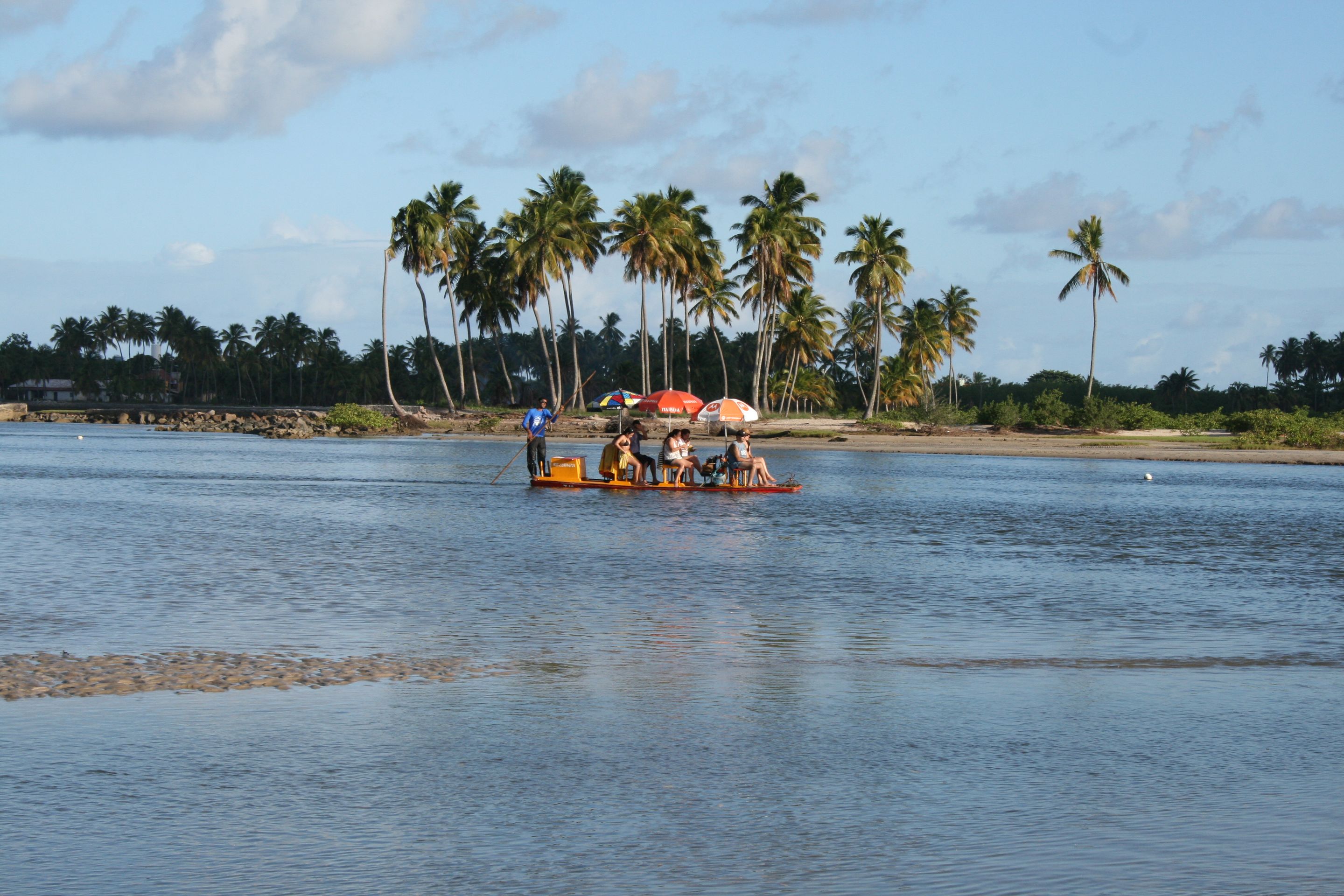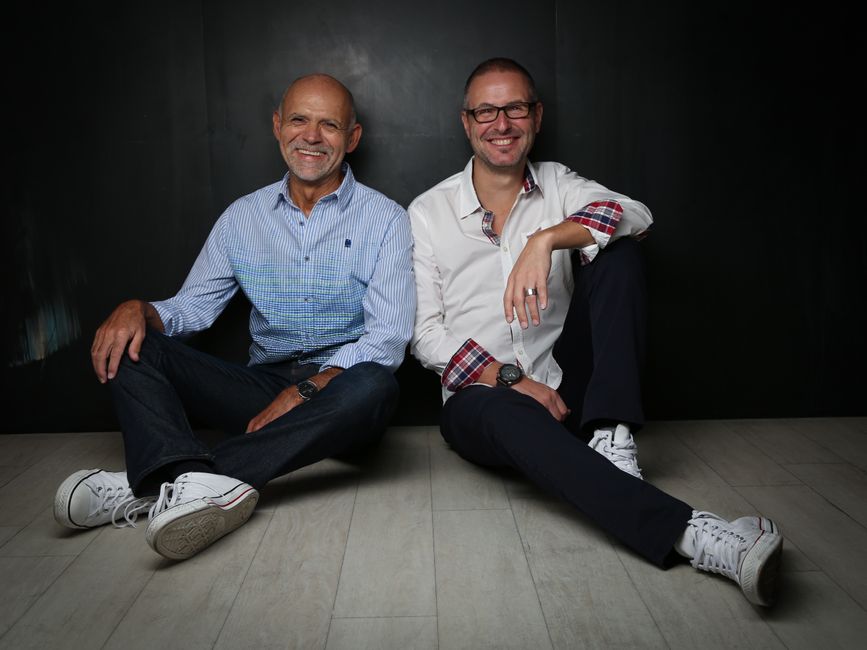
Riding shotgun with us ...
vakantio.de/riding-shotgun-with-us
Mo’orea – towering mountain peaks greet us
Pubblicato: 08.11.2024

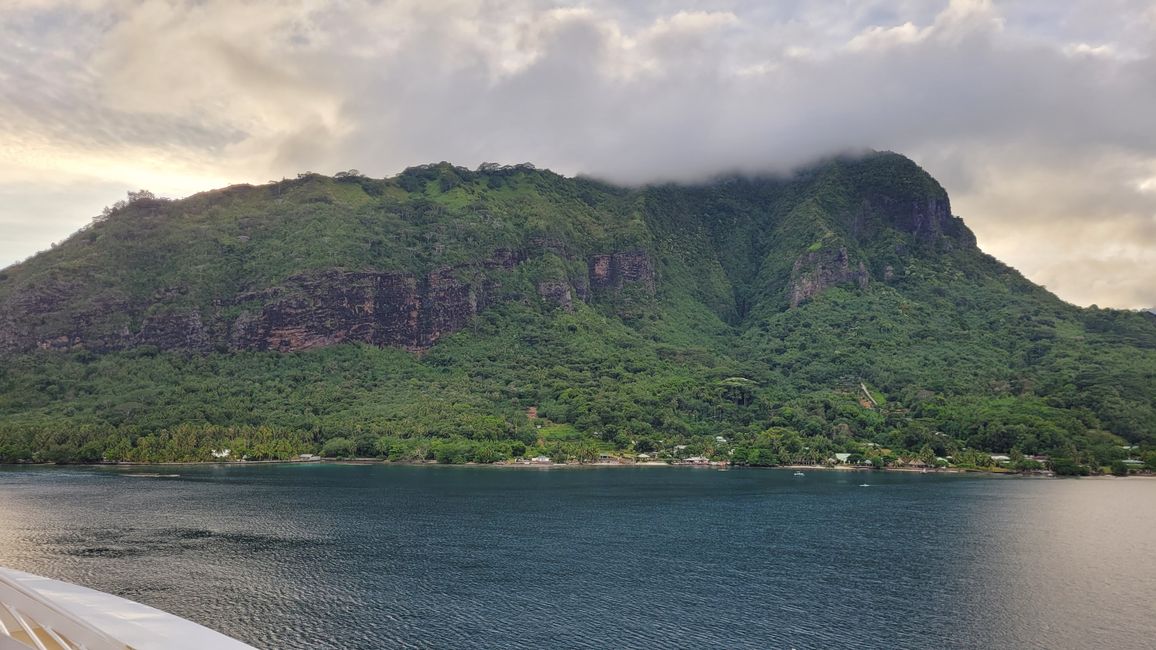
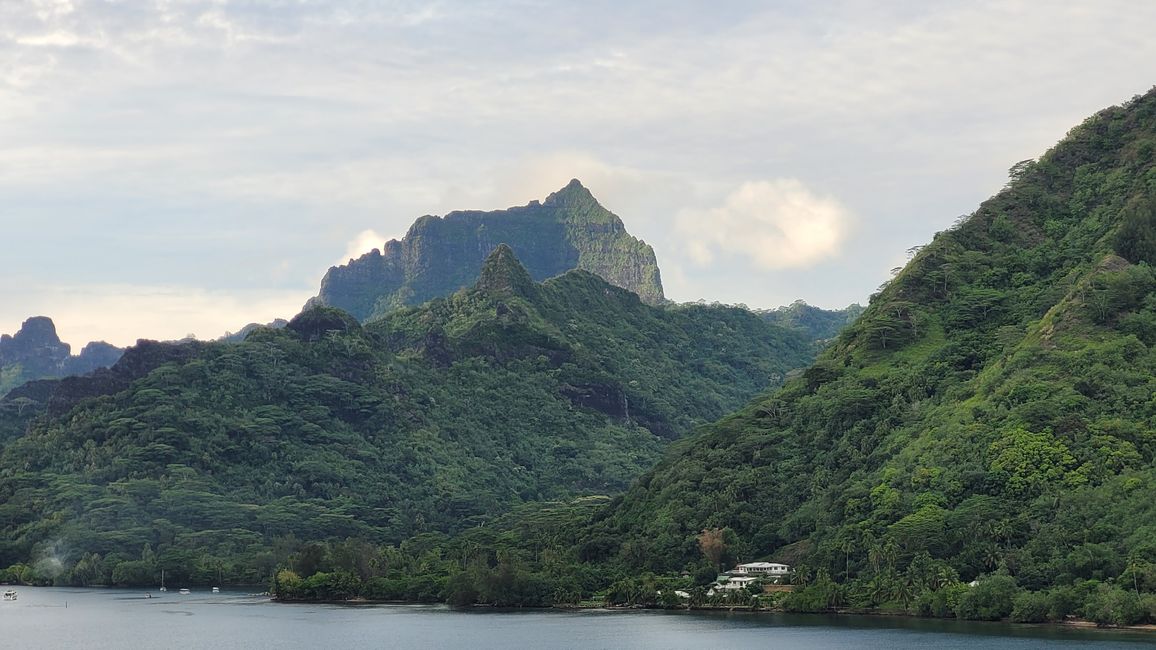
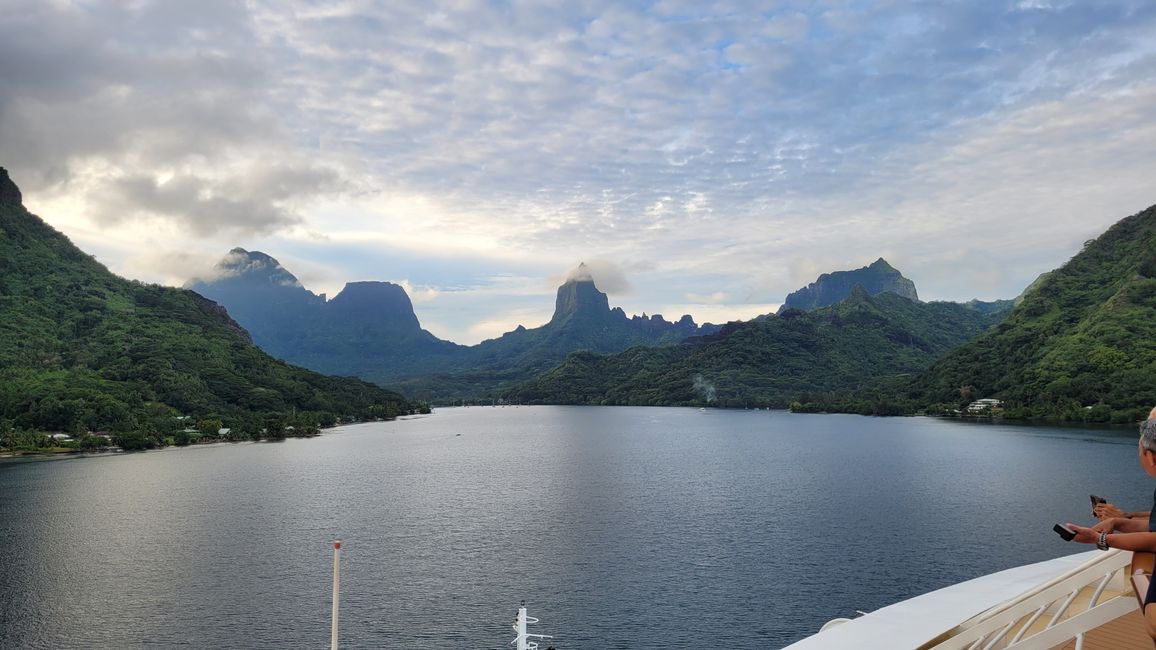
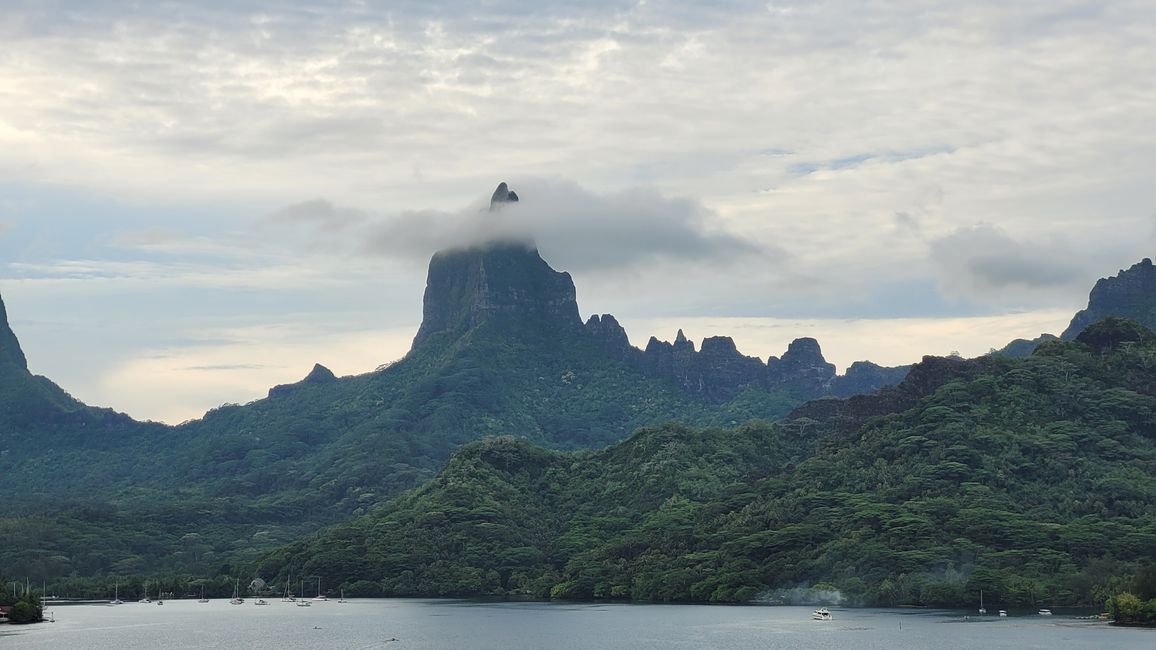
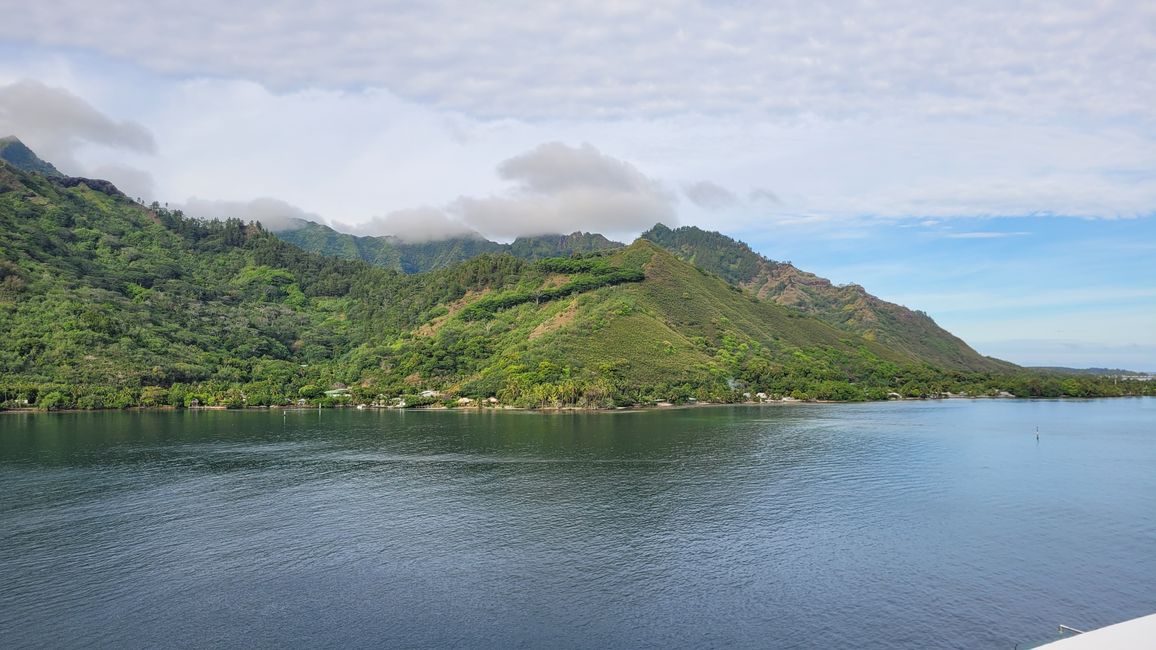
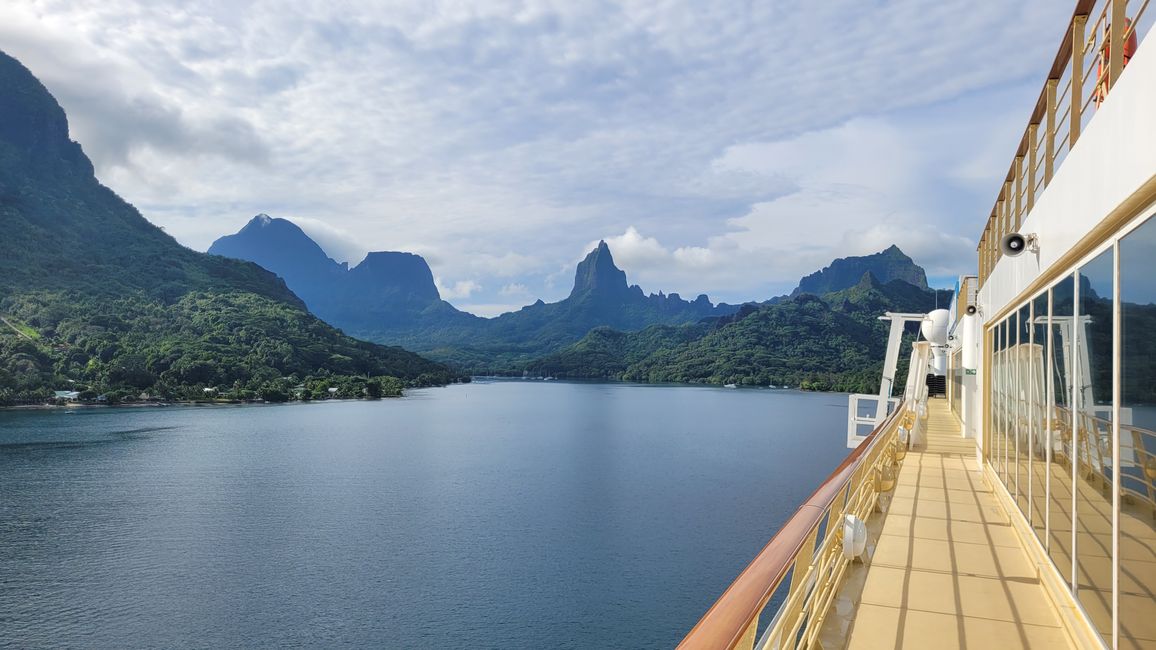
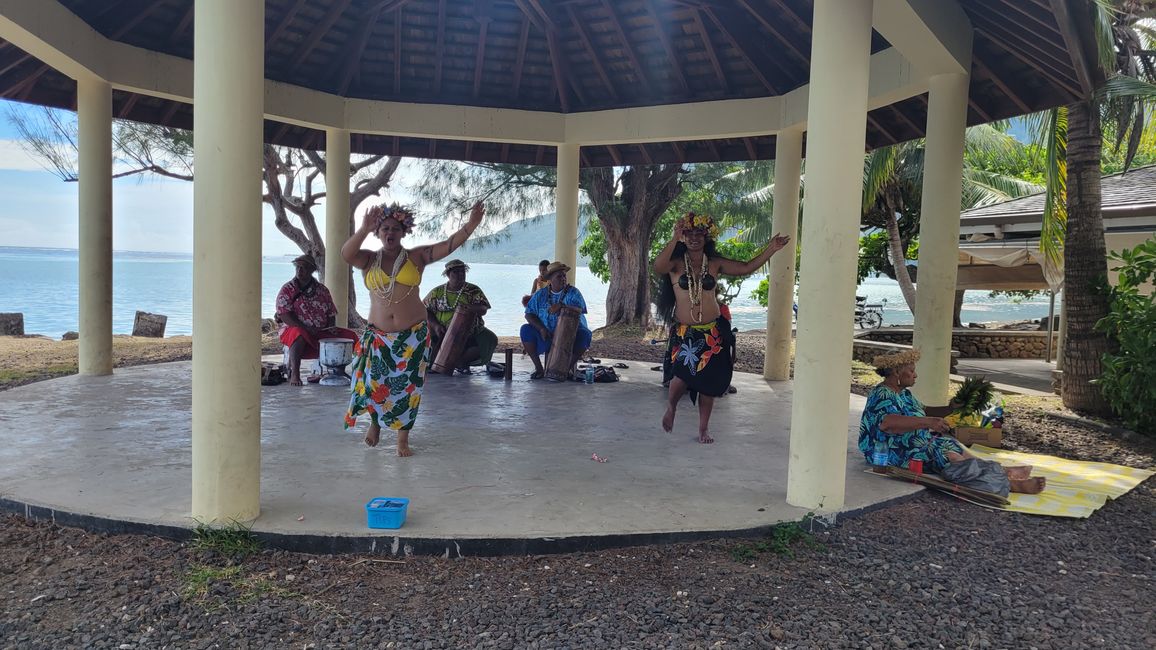
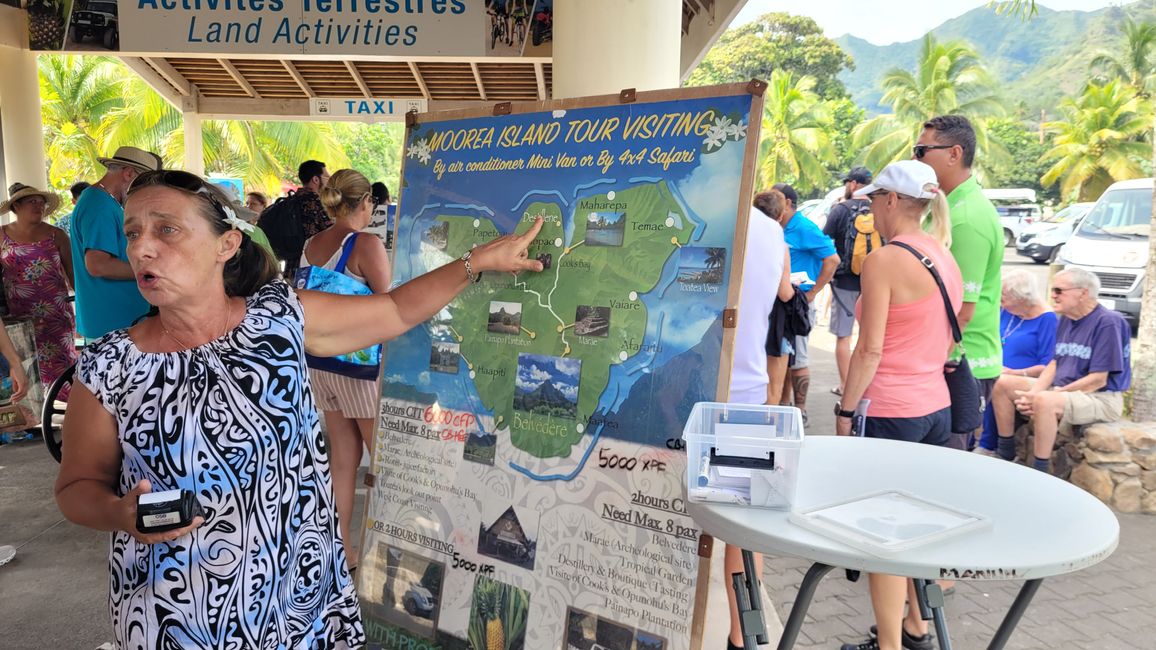
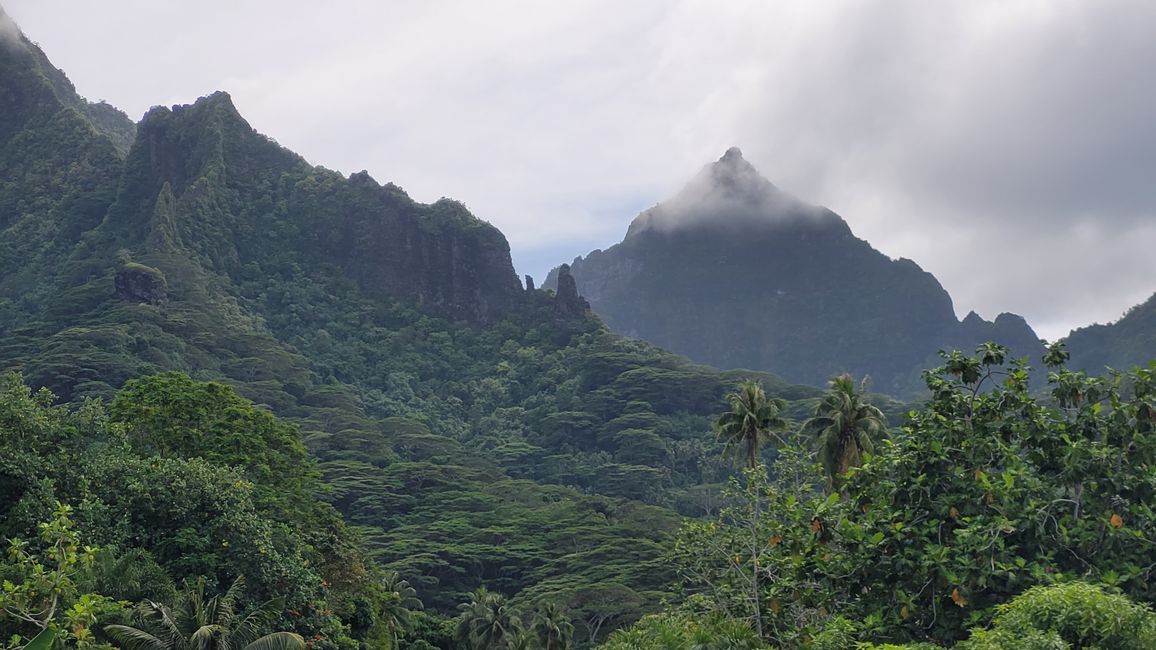
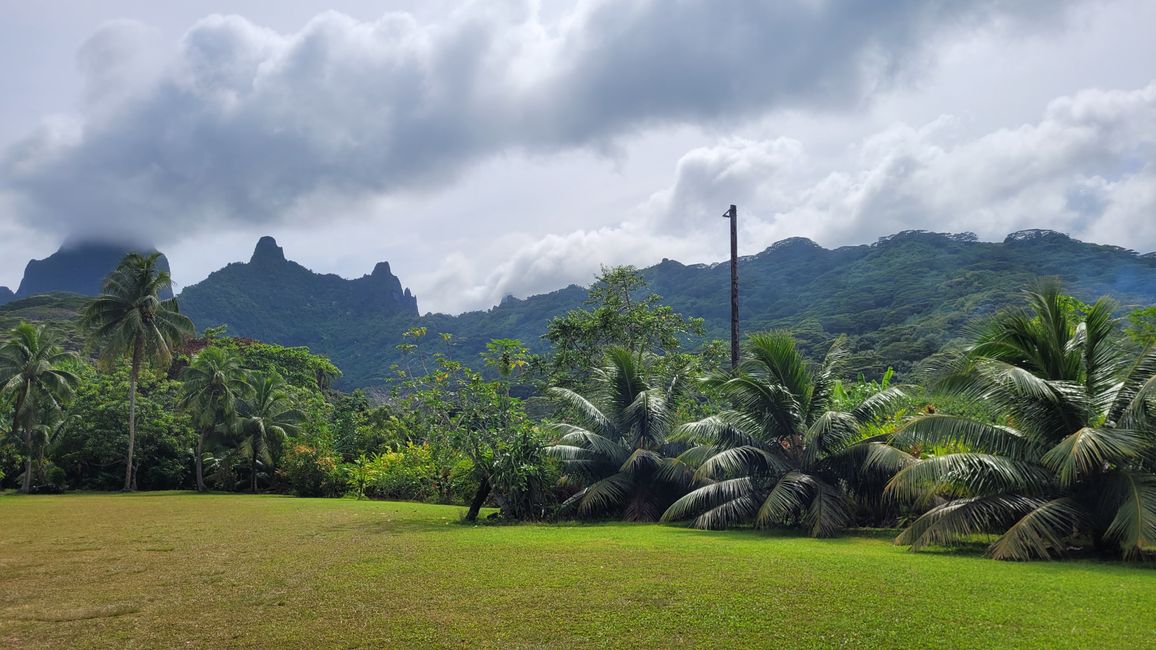
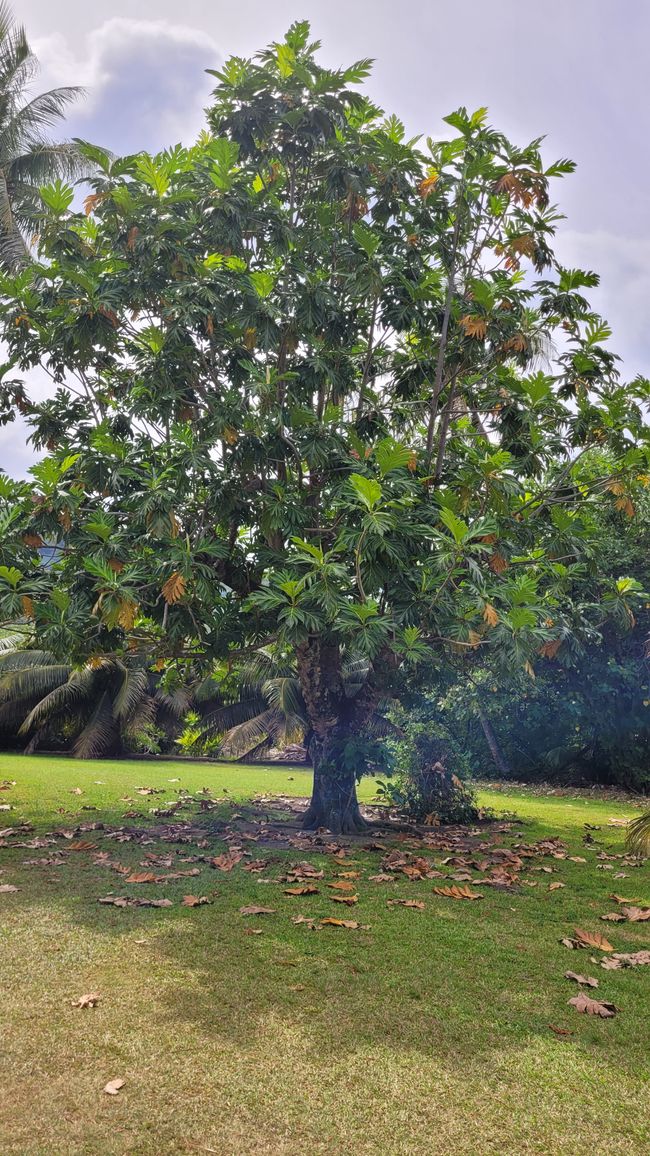
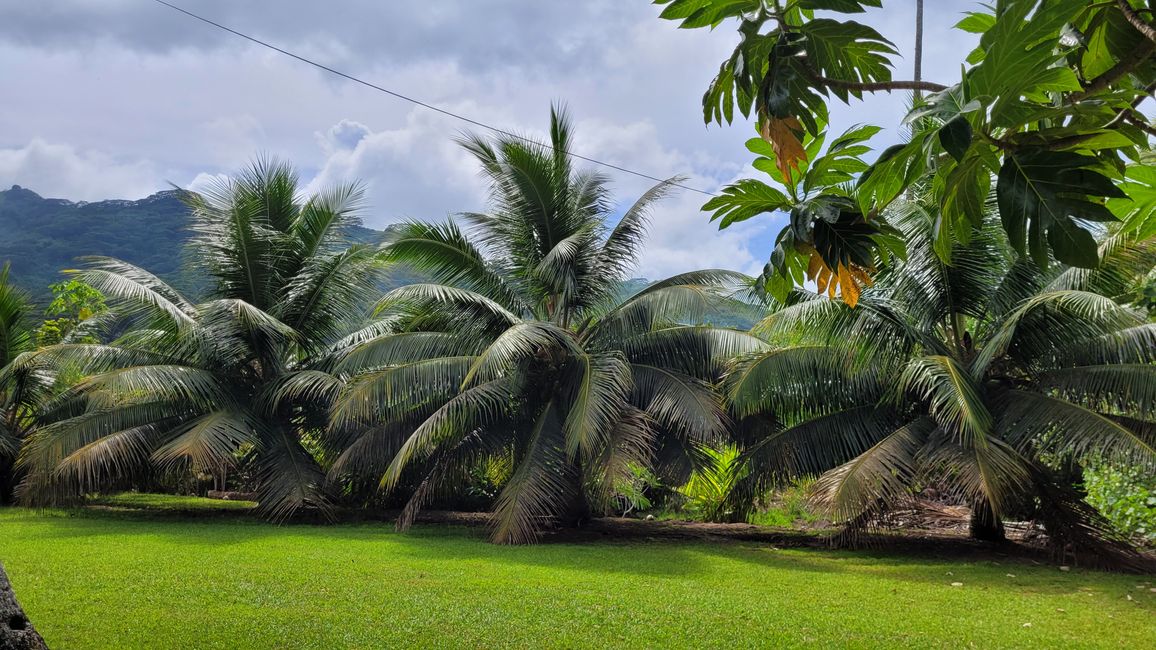
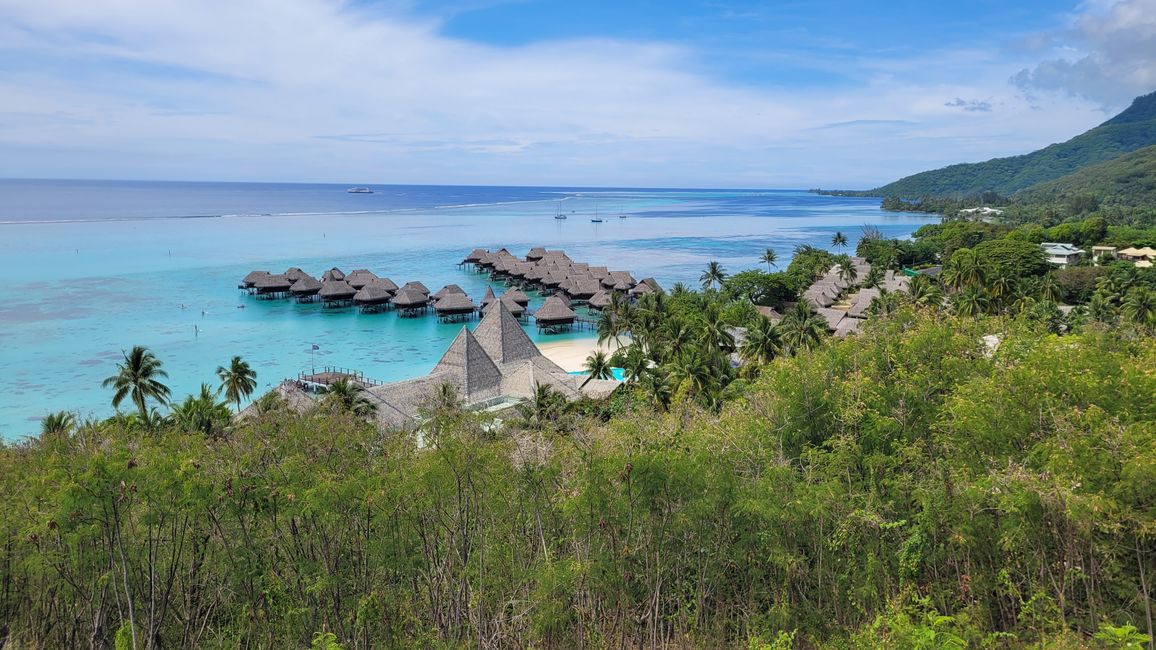
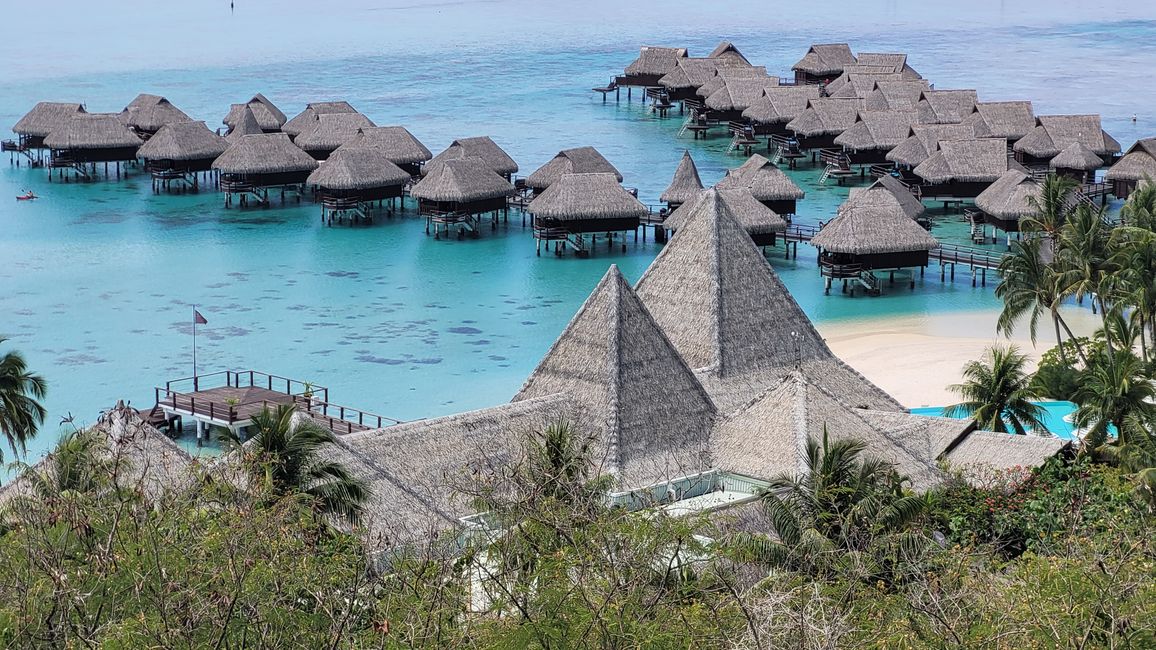
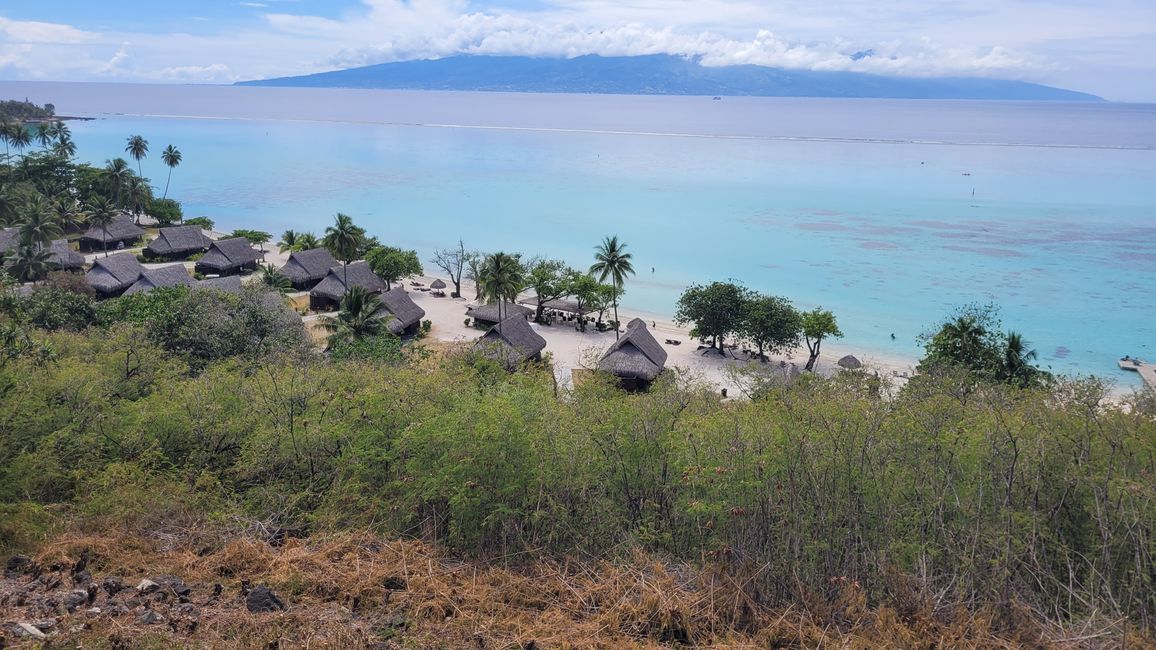
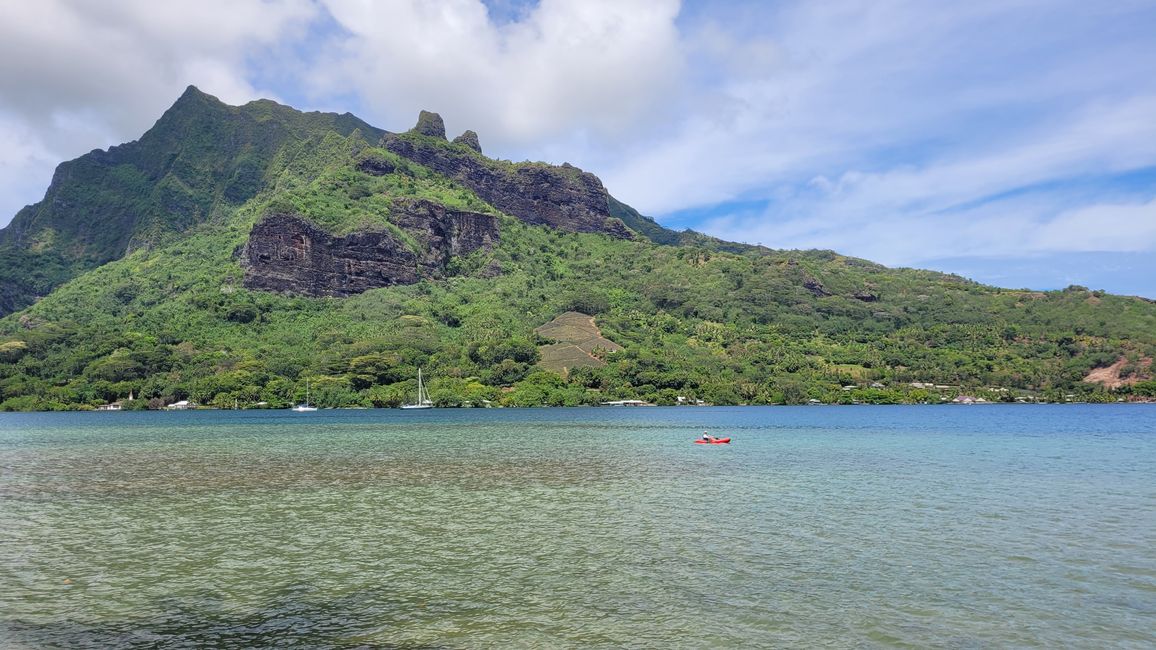
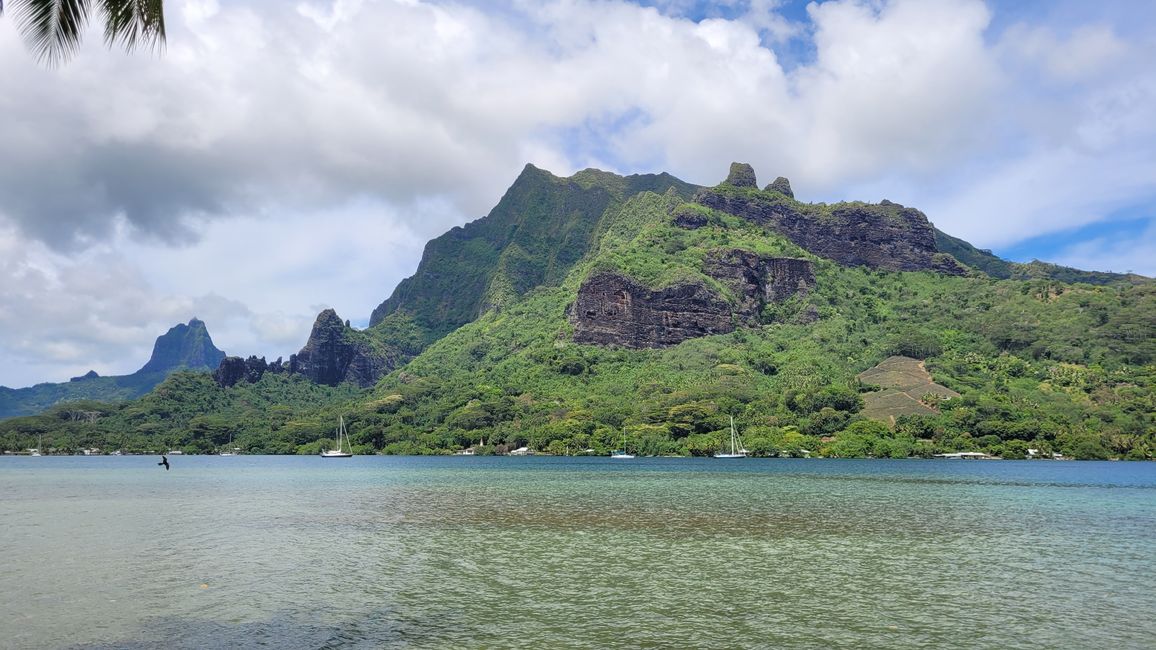
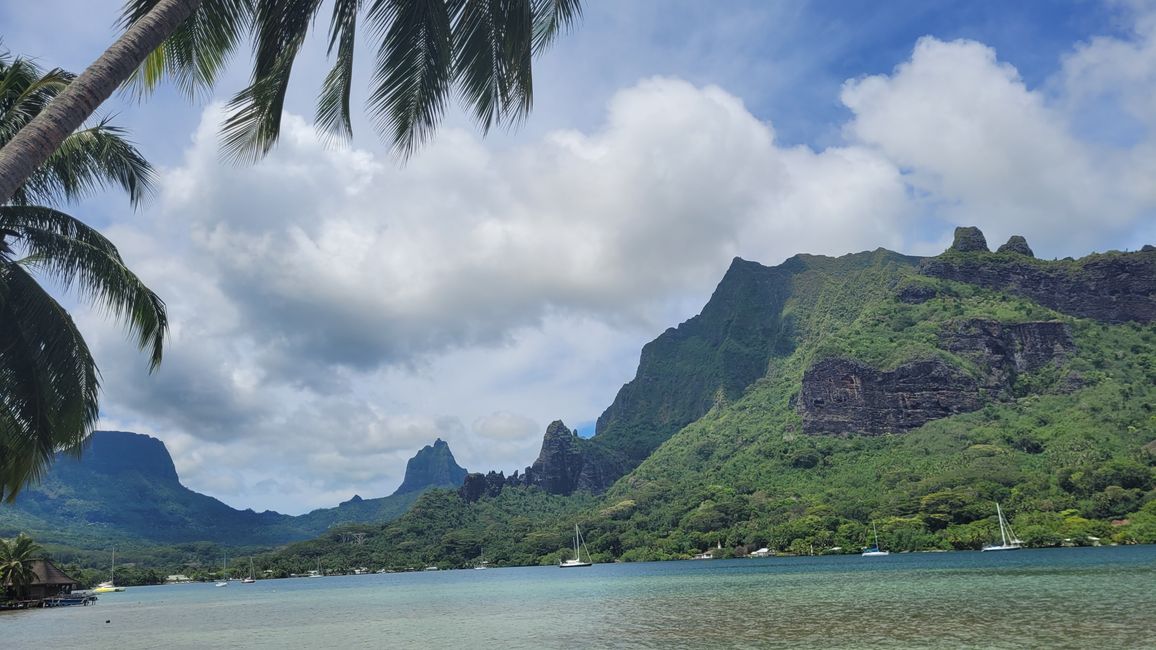
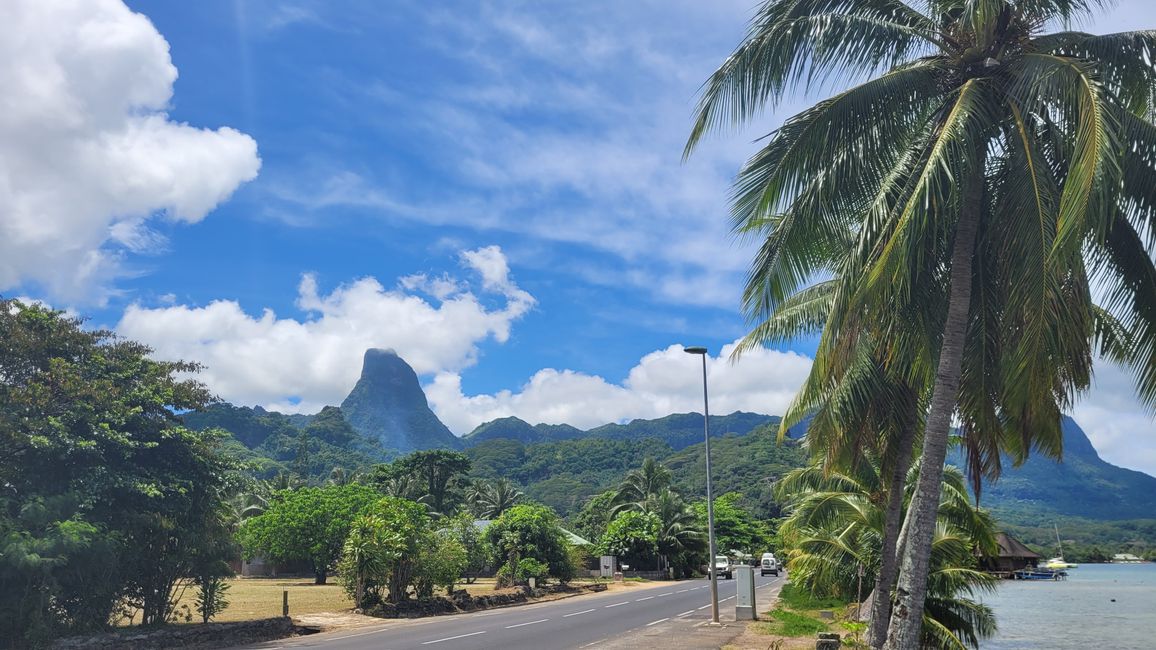
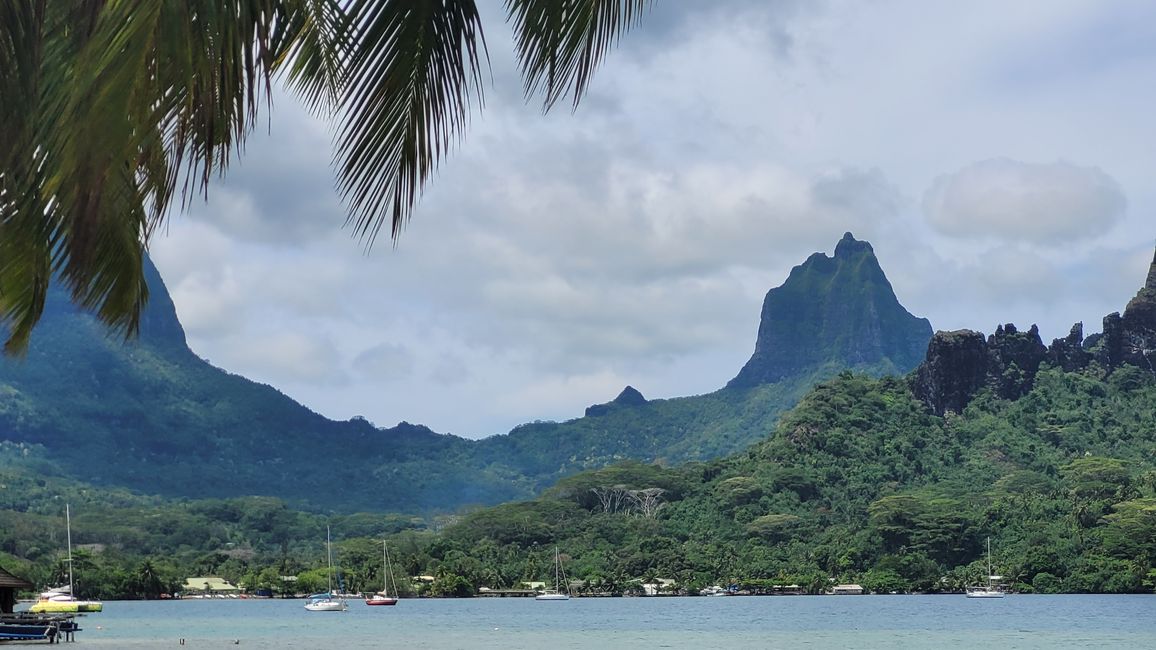
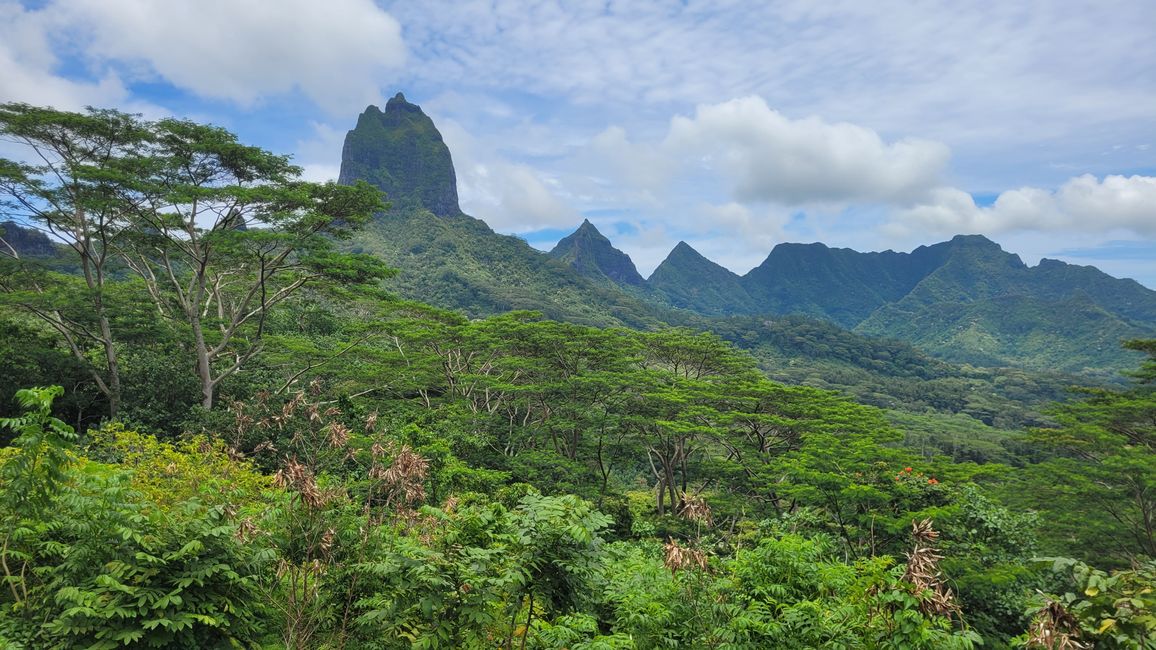
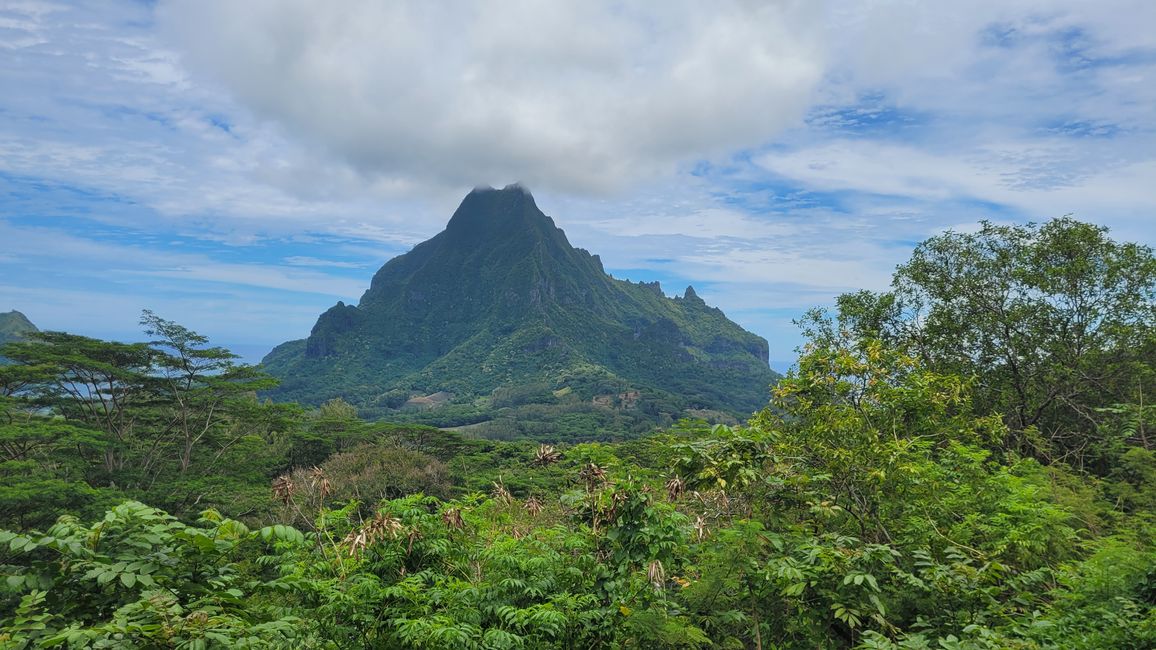
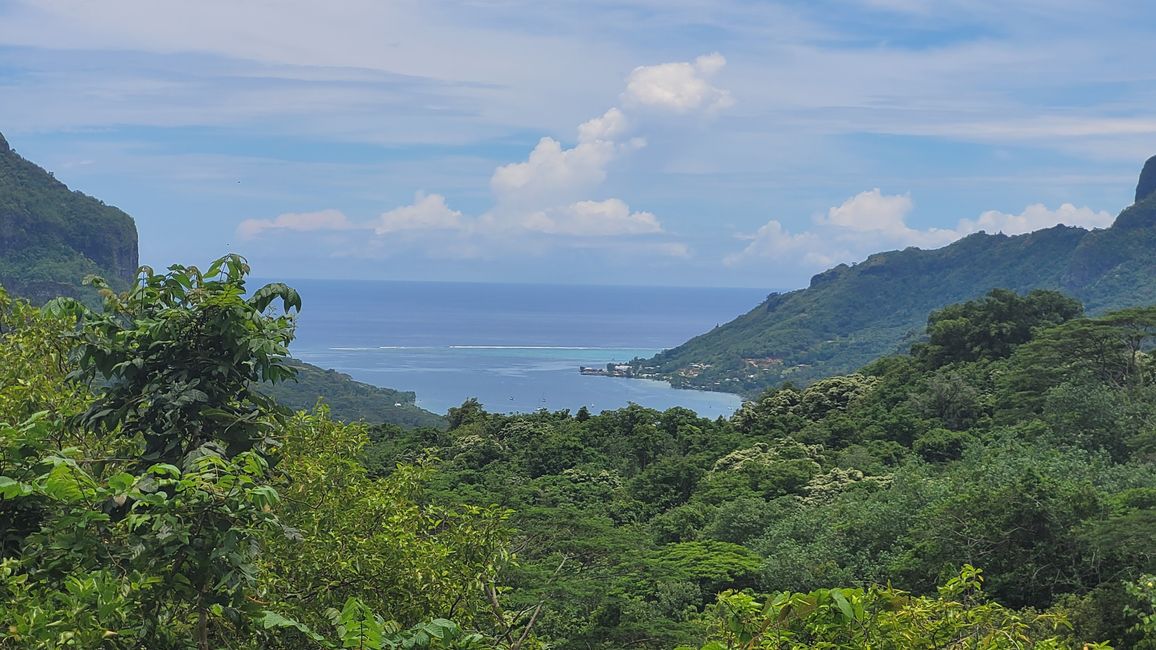
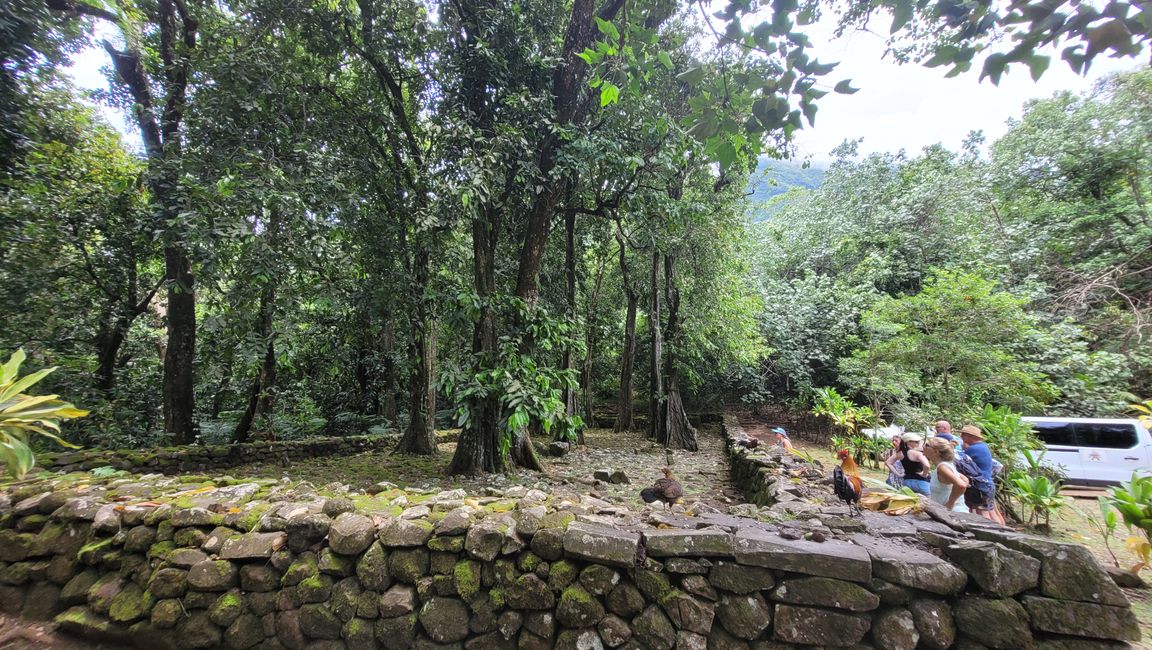
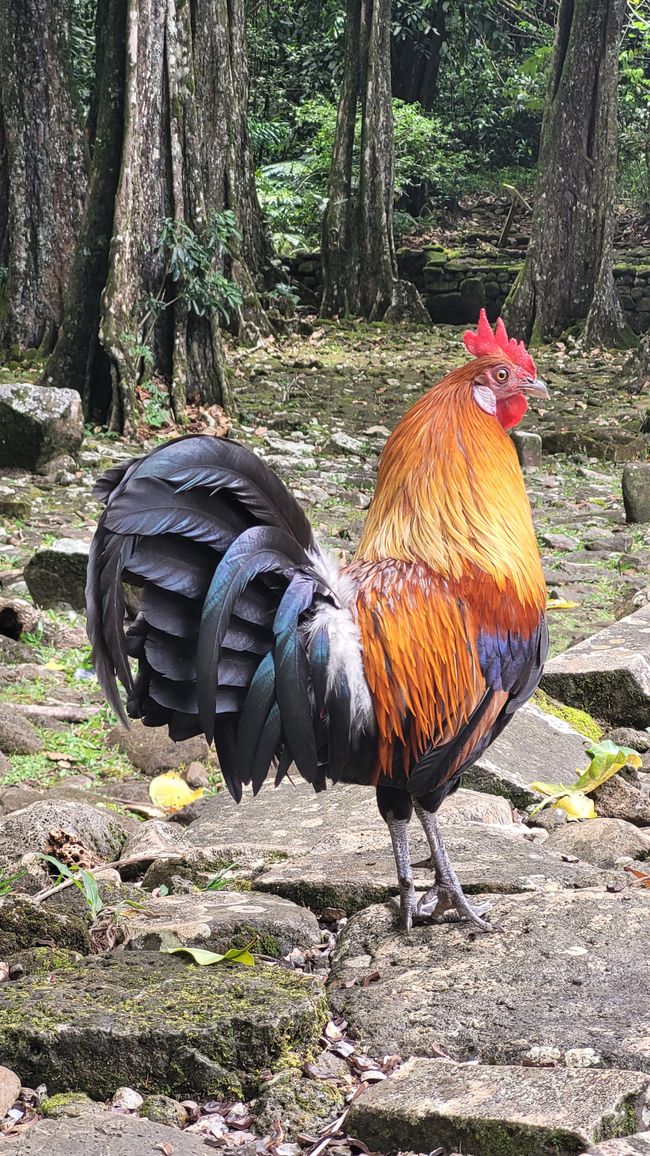
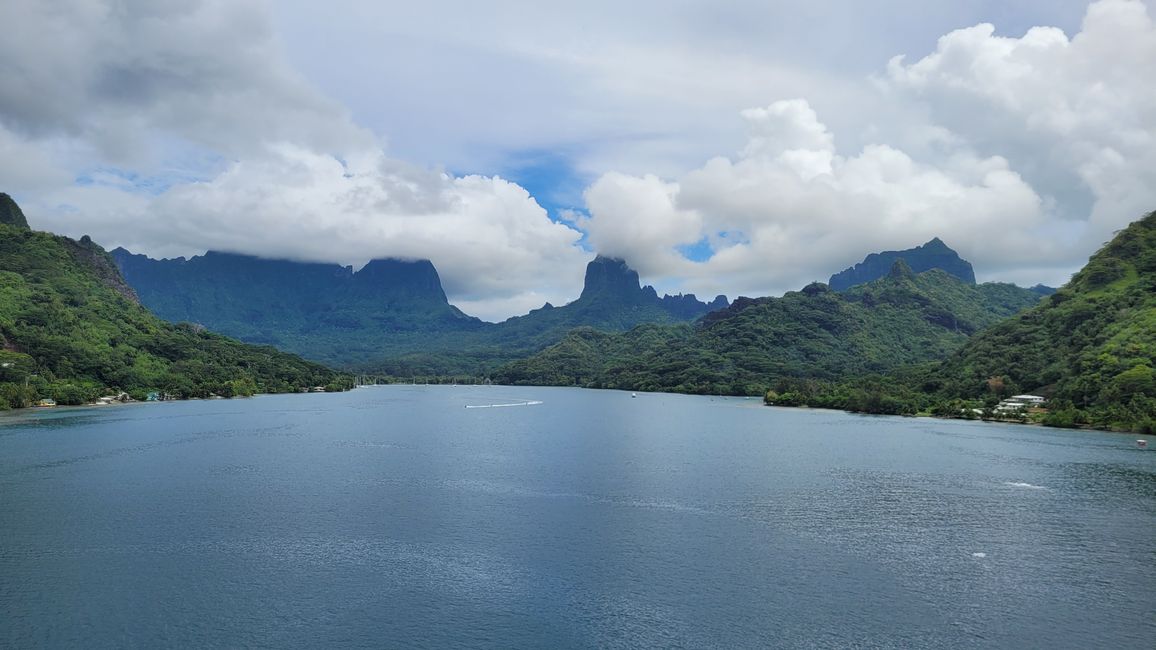
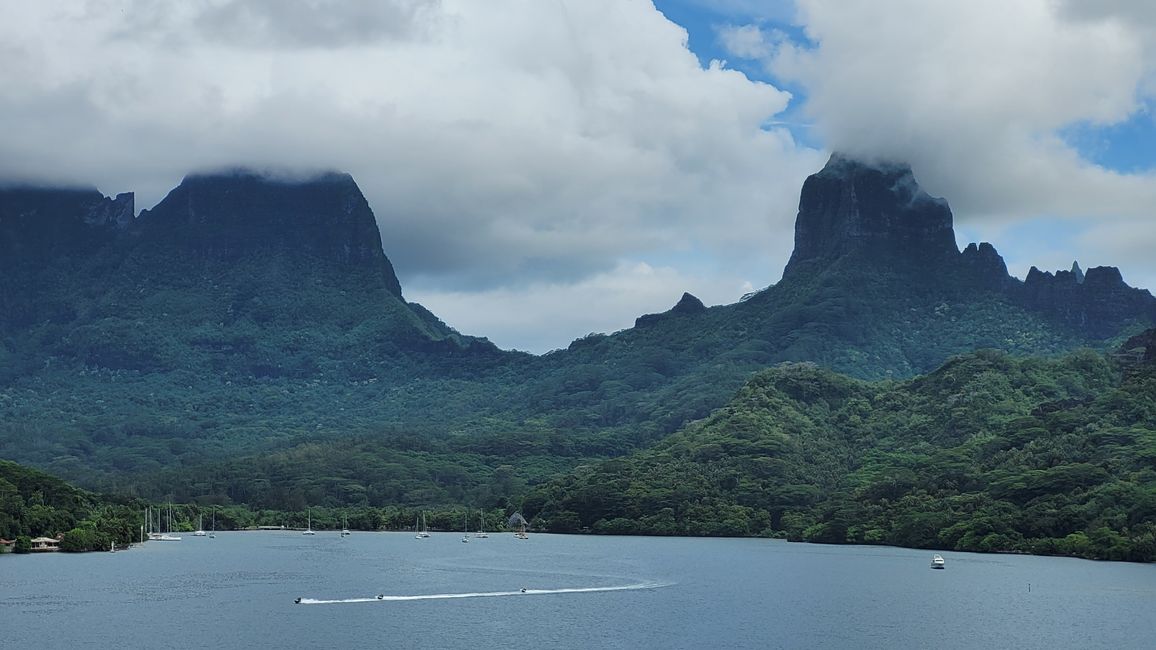
At six in the morning, we are already on deck to witness the entrance into Opunohu Bay.
A magnificent backdrop presents itself to us. Jagged high mountains that remind more of pinnacles than of 'normal' mountains stand so close that one might think they are just a stone's throw away. We haven't even had breakfast yet, and already such a view. Simply fantastic. The highest mountain, Tohlea, rises over 1200 meters high. Flanked by Mouaroa (880 meters) and Mouapu (762 meters), in front of them stretches the turquoise lagoon and its associated reef.
We are anchored in one of the two large bays where cruise ships come to moor. The bay on the right is called Cooks Bay. Captain Cook did not land here; he dropped anchor in Opunohu Bay. However, since this name was a sacred place, this bay could not be named after Cook, but rather the adjacent bay, which was supposedly not firmly established and unchangeable, was designated. Apparently, they were already a bit lax back then and created a bit of a 'fake' because it just fit …;-)
We landed next door and despite using tenders, we quickly made it to the island, where we are greeted once again with French-Polynesian folklore. Our plan for today is that we have no fixed plan. We let ourselves be guided by the offerings at the pier and choose a tour that appeals to us. Basically, our motto was that we would like to circle the island. Together with Petra and Michael, who are also 'without a plan', we find Madame Silvie, a guide who would take us on a round trip around the island if we could gather four more people.
There are many providers at the pier, but only a few that circumnavigate the whole island. Many offer a snorkeling excursion, or with others, the island is only circumnavigated in the northern area. It was important to us that we would also get to the viewpoint 'Le Belvedere' during the tour. From here, one should have a wonderful view of both bays. Silvie offers all of this.
We, or rather Silvie, find four more tour buddies, and after paying the participation fee of less than 60 euros per person for the approximately three-hour tour, we’re off.
We travel in a small van with eight seats, driving along the coast on the left. From above, Mo’orea looks like a heart with two recesses. As is common with small islands, there is only one well-developed road that runs along the edge of the shore. So we almost always have an unobstructed view of the lagoon and the mountains.
We stop at a Protestant church, and Silvie tells us that there are more Protestants than Catholics on Mo’orea. Indeed, the churches are always small jewels, no matter which island we are visiting in French Polynesia, and we admire them by the roadside.
In the churchyard, there is a large tree, the breadfruit tree. The Polynesians have a ritual that states that when a man or woman gives birth to a child, they bury the placenta in the ground and plant a breadfruit tree, coconut palm, or bananas on it. Something from which they can sustain themselves. The child, or person, should therefore always have a place to remember their birth.
We visit more spots that are worth stopping at for their views.
But Silvie offers us not only nice viewpoints. We are also – surprise, surprise – driven to a pineapple plantation where we can taste and hopefully buy pineapple juice or local rum. We taste nothing and do not buy anything – except: of course, magnets. So the stop was definitely worth it for us.
The next stop is the 'Le Belvedere' viewpoint. Silvie's vehicle struggles with us eight passengers up the hill and offers a truly perfect view of the mountains and both bays: Cooks Bay and Opunohu Bay.
We are glad that we are traveling in a small bus and not sitting in one of the larger buses. We actually booked such a tour, but due to overbooking, we were not taken off the waiting list. Thank God we can only say, as the NCL tour would have been twice as expensive as the very individual tour we were able to enjoy.
On the way back from the viewpoint 'Le Belvedere', Silvie took us to the place of origin of the Polynesians, a marae. Here, the most important men used to hold discussions about important matters of life, such as fighting and hunting. Today, they are seen as sacred sites.
From there, we traveled back to the harbor. By now, it had become so oppressively hot that we skipped the planned walk through the town of Papetoai. Our path led us directly to the tender boat and to our Norwegian Sun.
At 5 PM, we set sail, and the next day at 4:30 AM, we land in Papeete. Actually, we are only 17 km away from Tahiti, but we need the whole night to get there !?!?. A ferry connecting Moorea with Tahiti takes one hour... Who knows where the captain is taking us on this nearly 12-hour journey... Let’s be surprised...
Risposta (1)
Gimli
Whoa, schroffe, hohe Berge, die an Zinnen erinnern. Gefällt mir.
Von oben ein erstklassiger Blick? Le Belvedere hielt also sein Versprechen.
Ich würde mich aber am liebsten in die Berge hineingraben. Wie einst mein Vorfahre Druin.
Mo'orea, das neue Moria. Klingt doch schon ähnlich schön. Nur diesmal bitte ohne Balrog.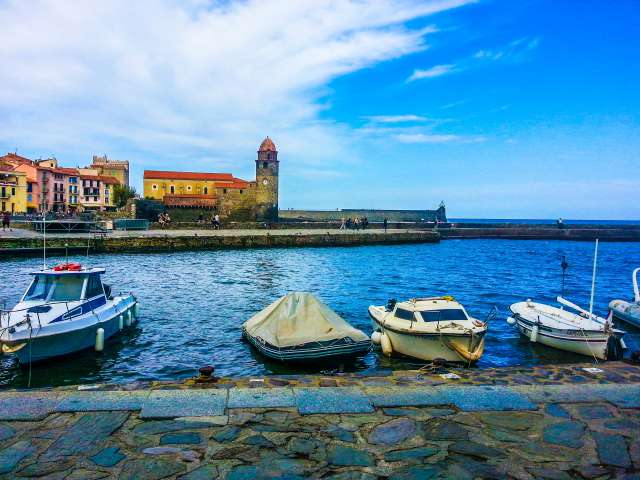
Rapporti di viaggio Francia
